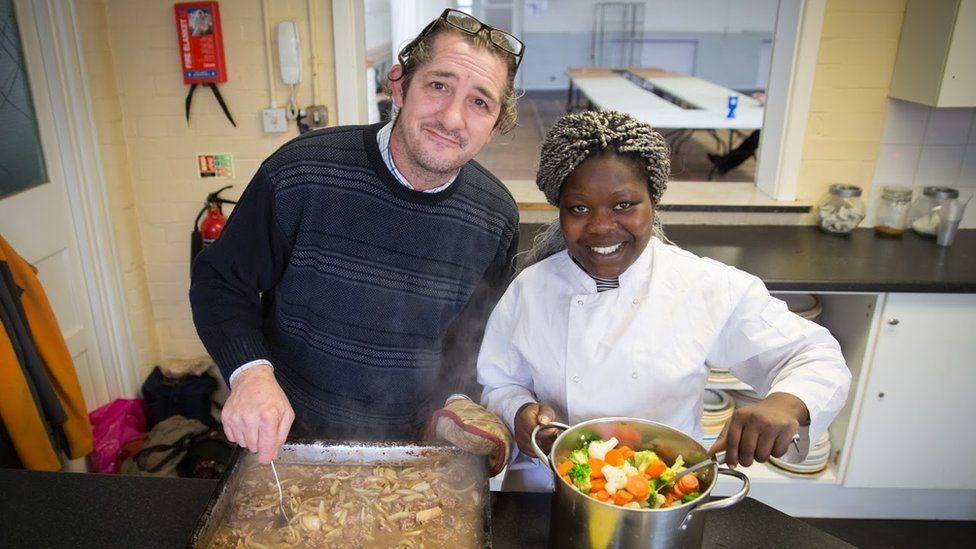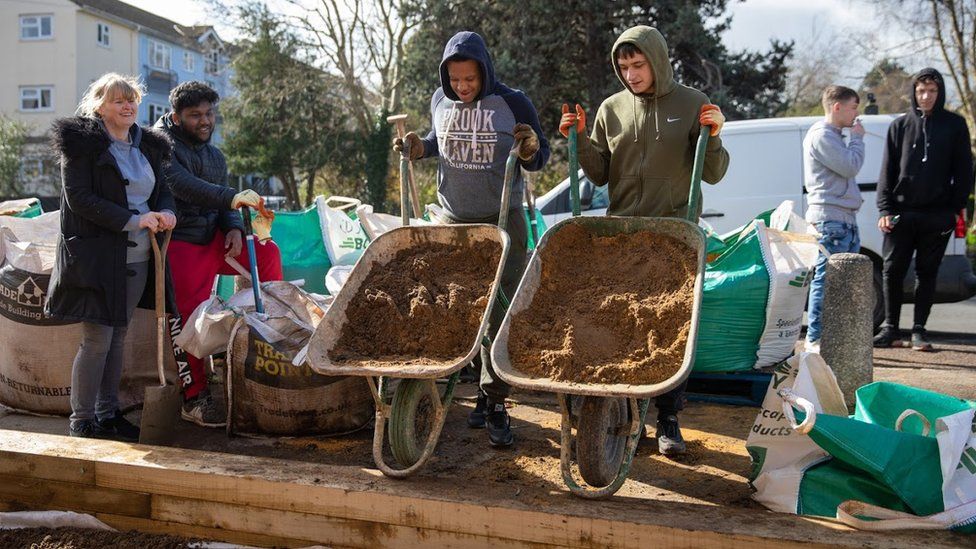The people turning time into a currency

After spending 10 years as a Buddhist nun in Myanmar, Coral Sunone realised that she needed some fashion help when she returned to the outside world.
But with money tight, getting assistance from a professional stylist was simply out of the question. Or was it?
Coral, who is based in Malaysia, heard of a website called TimeRepublik, which describes itself as “a timebank for the internet era”.
Time banking is in essence a more sophisticated form of bartering. You don’t pay someone in money for a job that they do for you. Instead you give that person time credits that they can then use to get a service without financial payment from someone else.
Via the TimeRepublik website, Coral was able to connect with Cherish Cullison, a New York-based professional wardrobe stylist and costume designer.
Over Zoom, Cherish was able to help Coral find the modern clothing that best suited her.
“She styled me very well,” says Coral. “No money can pay for such a transaction, it is priceless, it is based on trust.”
The two have stayed in touch after they first met on TimeRepublik a few years ago. This has included Coral returning the favour of assistance, and giving Cherish some meditation lessons, again in return for time credits.
Cherish says it is good that “the expectation of money is out of the way”.
“Instead you really get to the core of things and you discover something, I think, that’s greater and sort of priceless.”

TimeRepublik is the brainchild of Swiss co-founders Gabriele Donati and Karim Varini. They launched the first version in Switzerland back in 2012, but international expansion has come in the past couple of years.
The website is free to use for members of the public. Users offering a service earn a “TimeCoin” credit. This accounts to 15 minutes no matter what job you provide, be it cutting the lawn of a neighbour, or maths tuition via a video call.
You simply advertise what you are offering and how long it would take in TimeCoins.
“We wanted to distance ourselves from financial transactions and find something that could create relationships between people,” says Mr Donati. “Because we truly believe that only through our relationships, you can gain the trust of another person.”
TimeRepublik is today based in both Lugano, Switzerland and New York, and says it has more than 100,000 users around the world. It makes money by selling the service to companies who then offer it to their staff via their internal websites.
The concept of time banking has been around since the 19th Century. Mr Donati says that he wanted to bring it to a younger, and more digitally-savvy audience.


New Tech Economy is a series exploring how technological innovation is set to shape the new emerging economic landscape.

Another organisation helping to take time banking online is charity Timebanking UK. This offers assistance and software to help communities and organisations across the UK set up their own time-banking schemes.
The platforms allow users to post offers and requests, log hours and leave feedback.
Timebanking UK’s chief executive Sarah Bird highlights the built-in safeguarding features, such as users being able to flag any problems. “So if something goes wrong with the local time bank, we can just jump in there and see if we can fix things,” she says.

Ms Bird also explains that while time banking does not replace professional services or government programmes, it can underpin them, and engage people who would not usually do traditional volunteering.
She adds that the Department for Work and Pensions allows jobseekers to claim time-banking hours towards their time spent looking for paid employment.
“Time banking might be the first step that someone will take from long-term unemployment before they go on to maybe volunteer or on a training course, because it’s a method of making that person feel more confident about themselves,” says Ms Bird.
Timebanking UK has also set up similar schemes overseas, in countries including China, Russia, India, South Korea and Thailand.

At Cardiff-based Tempo Time Credits, its time-sharing model is a bit different. Instead of participants earning credits that they can redeem from someone else doing a job for them, they get credits that they can redeem at affiliated businesses, such as local gyms, cinemas, food shops and tourist attractions.
Rachel Gegeshidze, chief executive of Tempo Time Credits, says its online-based system is a way of attracting and rewarding volunteers. It is used by local authorities across the UK to help develop projects aimed at key community improvements, such as addressing loneliness or tackling poverty.
“It really supports people to do new things and try new experiences… but also, we have programmes to engage tenants in their communities and to improve health and wellbeing,” she says.
The charity’s 2022 Impact Report showed that there were 10,731 active participants and about 1,100 involved organisations. The study also found that 84% of people taking part felt more positive about their future.
Back at TimeRepublik, it says it doesn’t wish to be seen as a replacement for cash economies, and that instead it was “built to coexist” with them.
Cherish Cullison says that from her experience “everyone has been very happy about the exchanges and I’ve met some really interesting people”.
